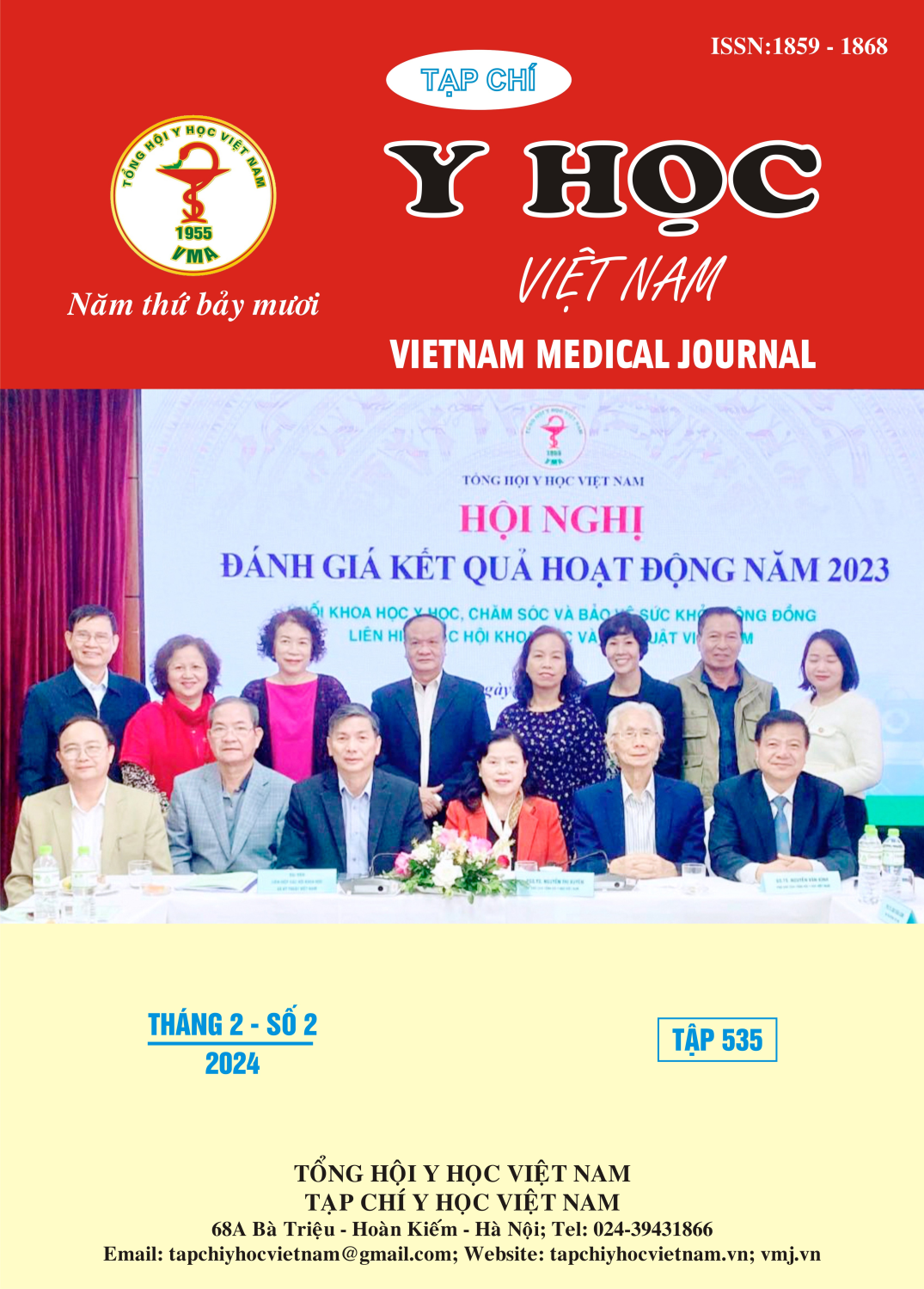SURVEY ON THE PATTERNS OF THE TRADITIONAL MEDICINE IN PATIENTS WITH POST-COVID-19 INSOMNIA
Main Article Content
Abstract
Objectives: To investigate the patterns of the traditional medicine in post-COVID-19 insomnia patients with or without comorbidities. Materials and Methods: A cross-sectional study interviewed 390 patients diagnosed with having insomnia post-COVID-19 at Ho Chi Minh City Traditional Medicine Hospital and Long An Traditional Medicine Hospital from 12/2022 to 06/2023. Results: Females accounted for a higher proportion than males. The average age was concentrated in middle age. The main professions were concentrated in the intellectual labor and retirement group. The most common traditional medicine patterns were deficiency of both the Heart and Spleen (31,28%), Heart-Kidney noninteraction (17,44%), Heart-blood deficiency (11,79%), Heart-yin deficiency (11,28%). The proportion of patients with comorbidities accounts for 2/3 of the total number of participants. The correlations was found between the patterns of traditional medicine in insomnia patients who experienced COVID-19 and factors of comorbidities such as hypertension, diabetes, osteoarthritis, and dyslipidemia (p<0,05). Conclusion: The most common patterns of post-COVID-19 insomnia in traditional medicine were deficiency of both the Heart and Spleen, Heart-Kidney noninteraction, Heart-blood deficiency, Heart-yin deficiency. Post-COVID-19 has led to an increase in insomnia of both individuals with and without accompanying chronic diseases. There are correlations between the most common patterns of traditional medicine in patients with post-COVID-19 and those who underwent comorbidities
Article Details
Keywords
insomnia, post-COVID-19, traditional medicine, comorbidities.
References
2. Nguyễn Lê Thị Bình Minh, Trần Nguyễn Quỳnh Anh, Nguyễn Long Điền, et al. Các triệu chứng kéo dài thường gặp ở bệnh nhân hồi phục sau nhiễm COVID-19 tại Thành phố Hồ Chí Minh. Tạp chí Y học Việt Nam. 07/18 2023; 528(1).
3. Nguyễn Đức Minh, Nguyễn Vinh Quốc. Bước đầu đánh giá tình trạng mất ngủ không thực tổn và một số yếu tố liên quan. Tạp chí Y học Việt Nam. 06/02 2021; 499(1-2).
4. Nguyễn Huệ Nguyên Tâm. Khảo sát mô hình bệnh tật của bệnh nhân là người cao tuổi điều trị nội trú tại Bệnh viện Y Học Cổ Truyền Thành phố Hồ Chí Minh năm 2019. Luận văn Thạc Sĩ. Đại học Y Dược Thành phố Hồ Chí Minh; 2021
5. Trịnh Thị Diệu Thường, Nguyễn Văn Đàn. Bệnh học và điều trị thần kinh kết hợp Đông Tây Y. NXB Y học; 2021; 108-145.
6. Huang C., Huang L., Wang Y., et al. 6-month consequences of COVID-19 in patients discharged from hospital: a cohort study. Lancet (London, England). Jan 16 2021;397(10270):220-232.
7. National Institude for Health and Care Excellence (NICE). COVID-19 rapid guideline: managing the long-term effects of COVID-19. Updated 11 November 2021. https://www.nice.org.uk/guidance/ng188/resources/covid19-rapid-guideline-managing-the-longterm-effects-of-covid19-pdf-51035515742
8. Poon M. M, Chung K. F., Yeung W. F., Yau V. H., Zhang S. P. Classification of insomnia using the traditional chinese medicine system: a systematic review. Evidence-based complementary and alternative medicine: eCAM. 2012;2012:735078.


